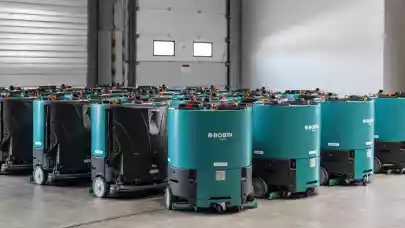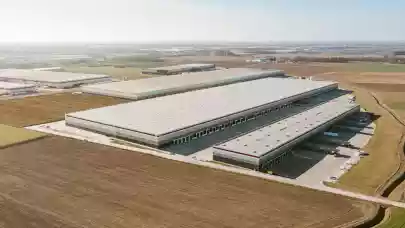
Members of the panel on ESG investments at CEE Property Forum 2022 in Vienna agreed that environmental issues are addressed much better than the social and governance parts of ESG. Panellists emphasised that leading organizations in the CRE industry should give clear guidance for improving 'S' and 'G' performance at all levels.
Quantifying the outcomes of energy efficiency investment is easier but that is not the case with the social part of ESG. The financial consequences of environmental investments are direct and can be easily modelled, which gives all the players room for further steps. Clarifying benefits from a socially responsible approach to projects is much more difficult, Adam Targowski, Group Head of ESG at CTP said during the conversation.
According to CTP’s understanding of 'S' from ESG, there are two categories to act in. One is a so-called internal one that covers social issues within a company (how workers are treated, etc.). The second is a so-called external which is summarizing the way the company works with suppliers and members of the local community.
Suzanne Eickermann-Riepe, Chair RICS European World Regional Board added a highly important aspect: the problem of valuation. „There is a bumpy road ahead in this respect as the majority of players see ESG as a necessary pledge (badge) to acquire without doing any concrete steps to realize ESG. Yes, demand is rising but the process is very slow.” She acknowledged that RICS has to give clear guidance to tackle changes.
The chair of the panel, Paul Toyne, Practice Leader Sustainability at architectural firm Grimshaw asked Erwin Hanslik, Partner and CEE Head of Real Estate of Tylor Wessing about the role of a legal adviser in making ESG practices more efficient. The answer was very simple: advisers try to count the costs of inaction ahead which is not easy but manageable.
Retail is affected very much and can produce good results, stated Angelus Bernreuther, Head of Investor Relationship Management at Kaufland in his presentation and also during the panel discussion. He said that apart from the known green investments Schwarz Group (owner of Kaufland supermarket chain) is concentrating on regionality to involve local producers of food wherever they are around a certain Kaufland unit. The group also checks the performance of suppliers in terms of environmentally friendly activity. As for the ’S’ part of ESG, the group supports community gardens and local street arts and tries to follow the rule of equality with all partners.
Paul finally asked panellists to define the future of ESG in CRE and got the obvious answer. The industry needs more clarity and has to follow the EU’s social taxonomy which gives initial guidance on the workforce, customers, and cooperation with communities. „We have to incorporate practices of the related stakeholders such as architects, constructions companies, banks to make real benefits from any ESG investment”, Suzanne Eickermann-Riepe added.



